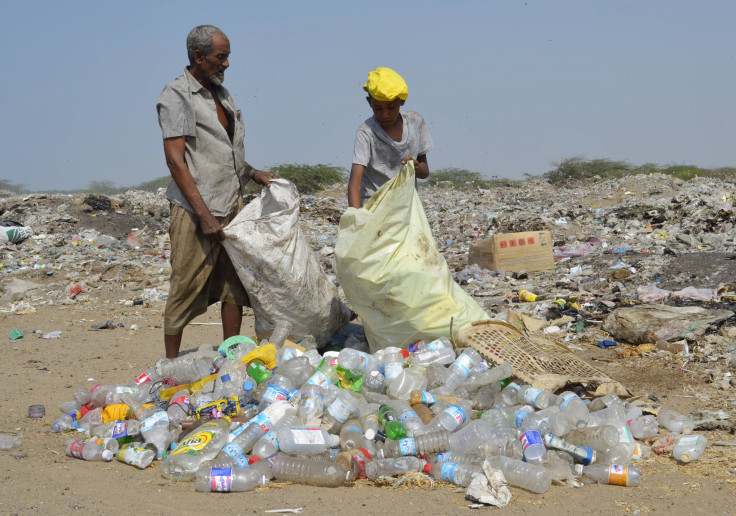New liquid fuel from waste plastic: Scientists convert plastic into clean and pure fuel

A joint US-China team of researchers used a two catalyst process to find out how to use discarded plastic products and then turn them into useful products such as fuel. The scientists have been able to turn plastic bags and bottles into liquid fuel. Compared to other methods, this new method requires lesser energy and gives a purer and better end product. The scientists have provided a new method to convert plastic into treasure.
The study, published in the journal Science Advances, involved mixing the plastic products with an organometallic catalyst that was in turn made by mixing readily available molecules doped with metal iridium. The reaction caused the bonds that hold the plastic together to weaken. The team then used the broken down material to create a diesel-like fuel that the claimed may be used to power vehicles and motors.
Polyethylene is the largest-volume plastic in the world. Three types of polyethylene, together with polypropylene, make up more than 60 percent of the total plastic in municipal solid waste. Polyethylene is extremely inert and does not degrade without special treatment. If one tries to heat it at temperatures more than 400 degrees Celsius, they result in a mix of wax, oil and gas. These are not especially useful.
Therefore, the scientists turned to catalysts that have been used to build polymers and not break them down. The two-catalyst process chops the polymer into mid-sized alkanes, the molecules of which hold enough carbons to be a diesel fuel.
“The team is cautiously optimistic however that they will be able to find a way to change their technique to allow for use in commercial applications, which could mean, future energy seekers might be looking in landfills for a source material, rather than beneath our feet,” Phys.org reported.
Zhibin Guan, a synthetic polymer chemist at UC Irvine and one of the study’s senior authors, said that the researchers are hoping that they would be able to provide the technology’s key components. Guan added that further developments and collaborating with industry will help in establishing a real useful recycling process, LA Times reported.






